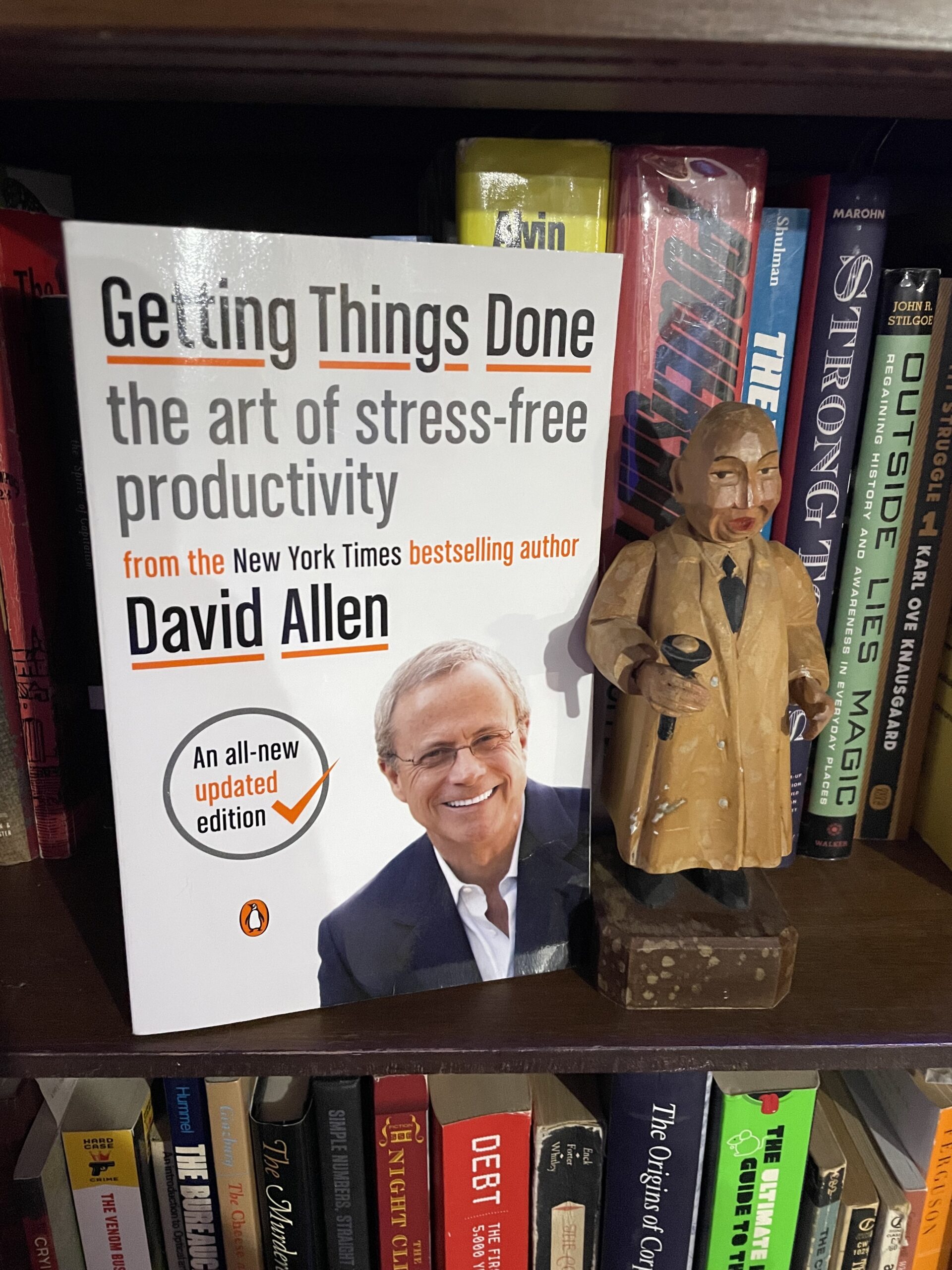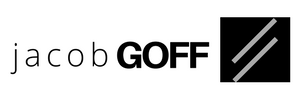This is a review of Getting Things Done by David Allen which I recently read. Technically, this was the second time I read it, but the first time was over 15 years ago and so it felt almost fresh.

I bought the all new updated edition, but it turns out I think I already owned this exact copy. Productivity books are sort of in a different category to me than self-help books. The self-help stuff tends to rely more on developing a spiritual system, or convincing yourself that you are worth it. David Allen is much more of an analog system builder, not necessarily just a thought organizer.
The real gold of Allen’s system is the idea that you can have near total faith that nothing will slip through the cracks. This is so critical. If an idea occurs to you, he has a bucket to put it in. And not just a bucket, he walks you through the rhythms required so that you are frequently emptying out that bucket and processing the stuff. He makes a great point that you would be amazed what is possible if you get out of your own way, “externalize your brain”, and actually make progress on all the projects that you think so much about. This is so close to home for me, I have so many projects in such disparate areas. I think, when I read this book at 20 years old, it sort of ruined me. I allowed myself to dream up a lot of projects in really different domains, with the assurance that I would capture them into my system and make sometimes slow but meaningful progress towards those goals. This was in a lot of ways a success, I have accomplished strange things across varying domains, but I also think I had abandoned this method and really been flying by the seat of my pants for over a decade now.
I can still remember when I was on the system and it was really effective for me. I am currently not. Well, I’m maybe 25 percent on-boarded. There is something in my workflow right now that is extremely resistant to this system. I think that might just be an excuse I’m offering, but it does seem like I don’t have enough to fill out the proper buckets, and I also don’t feel like my routines are conducive to staying on the system. I might have to revisit a few of the chapters, although I think I have the technical side down pretty well.
I have tried other organization books, and honestly compared to David Allen I really think they are beating around the bush at the core issues that Allen knows how to attack by flanking — you address all of the surrounding issues that are contributing to this sense that you are drowning and therefore you find your footing. There is a really spiritual element to this book, but it occurs after you get the “inbox zero” mindset that can come with this. There is a lot of nitty gritty and weed-pulling necessary to find that spiritual peace that Allen promotes a bit in his system.
I originally had read this book and got locked into this system when I was Darrin Patrick’s executive assistant. That job had a lot of moving parts and pieces, and if things fell through the cracks I would likely get bitched out. Maybe that is the motivation that I am lacking today to fully implement this system. If so, I think I am perhaps intelligently integrating the method slowly with the hope of it actually sticking around longer than a couple years. I like the system enough, and there is plenty of room for personalization, that I like to imagine I will be refining my own “external brain” and personal organization system for years to come.
The Mind Like Water concepts are the end result of implementation: Your mind is free to attach to any idea that occurs to it, because it can engage fully without fear that the execution will be botched due to disorganization. Getting things off your mind and captured in one of your to-do lists is critical. Allen is a martial artist, and this vision of personal productivity as a sort of combat technique is really compelling. It reminds me of a Robert Ludlum spy novel I read once, where the main character said the words of his mentor frequently: Sleep is a weapon. It is the same idea, discipline is the preparation for war even in times of peace. This is the value of a powerful personal organization system.
I think everyone should read this, in fact, I think this should be taught as a class at public high schools. It is that powerful of a method.
Rating: 4/5
I give this book four out of five. I don’t know why I took a point off, other than maybe because the updated version wasn’t much different for me. I also think there are moments when he could have given more examples of how to specifically break things down — perhaps showing his personal organization system in action with his real tasks.
